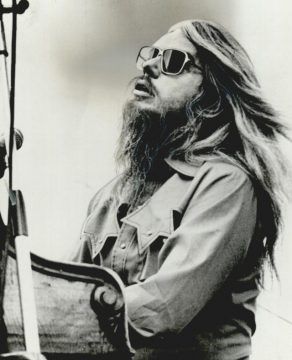Stuck is a weekly serial appearing at 3QD every Monday through early April. A Prologue can be found here. A table of contents with links to previous chapters can be found here.
by Akim Reinhardt
 He released 33 albums and recorded over 400 of songs, earning two Grammys among seven nominations. Yet you probably don’t know who Leon Russell was. For some people he’s a vaguely familiar name they have trouble putting a face or a tune to. Many more have never even heard of him. Because despite his prodigious output, Russell also had a way of being there without letting you know. He was the front man whose real impact came behind the scenes. He was very present, but just out of sight.
He released 33 albums and recorded over 400 of songs, earning two Grammys among seven nominations. Yet you probably don’t know who Leon Russell was. For some people he’s a vaguely familiar name they have trouble putting a face or a tune to. Many more have never even heard of him. Because despite his prodigious output, Russell also had a way of being there without letting you know. He was the front man whose real impact came behind the scenes. He was very present, but just out of sight.
In addition to recording his own music, Leon Russell was a prolific session musician who worked with hundreds of artists over six decades. His main instrument was piano, but he played everything from guitar to xylophone. Russell was also was a songwriter who contributed to other musicians’ oeuvres. His song “This Masquerade” has been recorded by over 75 artists. “A Song For You” has been recorded by over 200. Finally, he was a record producer, a mastermind behind the glass and in front of the mixing board who oversaw and orchestrated, literally and metaphorically, the artistry of others. Read more »
